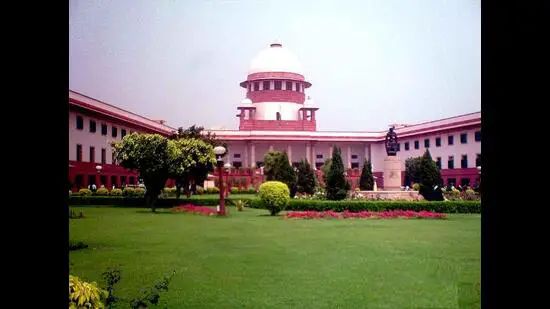The Supreme Court on Friday reversed a 2008 ruling by the National Consumer Disputes Redressal Commission (NCDRC) that barred banks from charging more than 30% annual interest on overdue credit card payments, allowing banks to determine their own rates within existing regulations.
A bench of justices Bela M Trivedi and Satish Chandra Sharma set aside the NCDRC’s decision, which had declared such high rates to be an unfair trade practice. The apex court’s ruling came in response to appeals by multiple banks, including Standard Chartered Bank, Citibank, and HSBC, contesting the NCDRC’s cap on credit card interest rates.
“In view of foregoing reasons, the judgment of the NCDRC is set aside and appeals are allowed,” said justice Trivedi while delivering the verdict. A detailed copy of the judgement was awaited till the time of going to print.
The impugned NCRDRC order was stayed by the Supreme Court on February 3, 2009.
Most credit card companies in India charge somewhere between 22-49% in annual interest rates at present.
The case originated from a petition filed by Awaz Foundation, an NGO, which questioned whether charging interest rates between 36% and 49% per annum on credit card dues amounted to exploitative or usurious practices.
The NCDRC, in its 2008 decision, labelled such rates as excessive and noted that they disproportionately burdened consumers, particularly those already in financial distress.
The NCDRC had also criticised the Reserve Bank of India (RBI) for its lack of regulatory intervention, arguing that the central bank’s failure to define a “usurious” interest rate had allowed financial institutions to exploit borrowers. The commission emphasised that penal interest should not be capitalized and accused banks of using compounding practices to inflate dues further.
In support of its stance, the NCDRC compared global credit card interest rates, noting significantly lower rates in developed economies like the United States and the United Kingdom, where rates ranged from 9.99% to 17.99%.
The commission maintained that India had no justification for adopting the higher rates prevalent in smaller, emerging economies and called for moderation aligned with developed markets.
The RBI, however, maintained that it does not regulate specific interest rates charged by banks, instead leaving such decisions to the discretion of individual banks’ boards of directors under the Banking Regulation Act, 1949. While the central bank has directed financial institutions not to charge “excessive” interest rates, it refrains from setting strict caps.
Banks, in their defence, argued that capping interest rates would undermine their profitability and affect credit availability. They claimed that high interest rates offset the risks of default and the costs associated with providing services like customer assistance and free alerts. Additionally, they contended that the NCDRC lacked jurisdiction to regulate their operations, particularly in matters of interest rates, which fall under RBI’s purview. Some of the banks were represented by senior advocates Abhishek Manu Singhvi and Dhruv Mehta.
In overturning the NCDRC ruling, the Supreme Court supported the banks’ position that interest rates are governed by market dynamics and regulatory oversight by the RBI, not by consumer fora. It acknowledged the complexities of managing credit card facilities and the need for institutions to mitigate risks through higher interest rates, according to lawyers associated with the matter.



